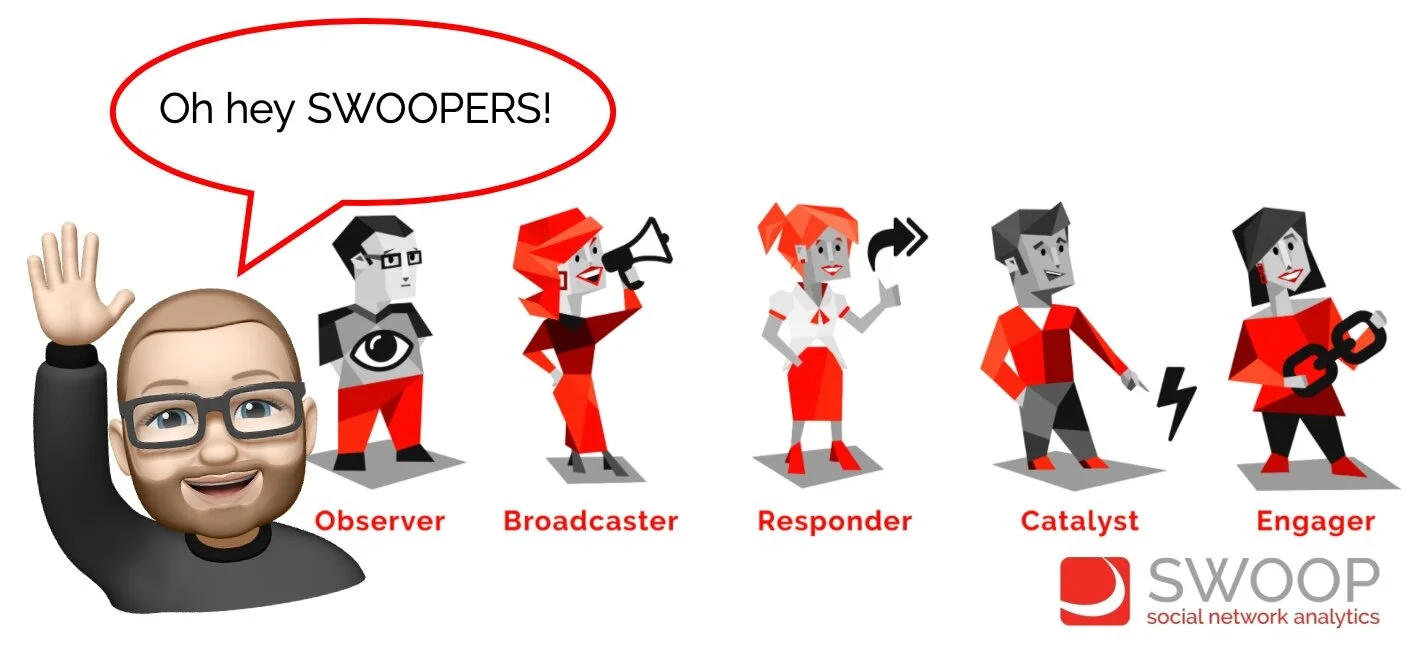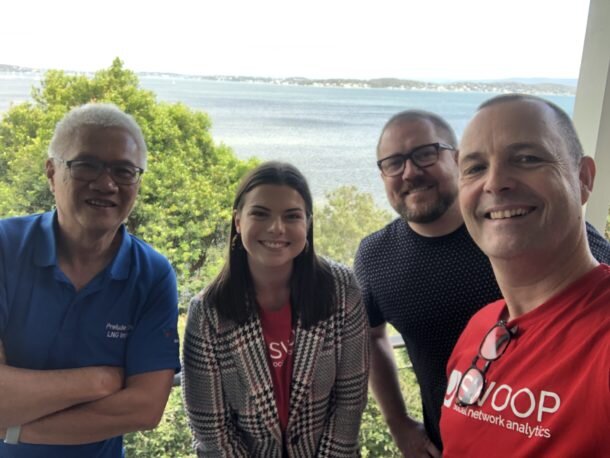Why I’m joining SWOOP: The Urgent Need to Measure Collaboration Effectiveness
For the past 15 years, I have been helping organizations around the world implement, grow and measure collaboration and knowledge management tools.
From my days as one of the first enterprise Community Managers in Australia at financial services company AMP, to my most recent experience rolling out a global sales knowledge management community at American Express, the goals and objectives for enterprise collaboration and social networks remain largely the same as they were. To increase the flow of information across organizational silos, to allow employees to stay connected wherever they are, to increase knowledge sharing and collaboration, to provide faster access to expertise, to enhance the customer feedback loop, and to act as a cultural enabler i.e. to make work a better place to be.
Progress against measurable collaboration KPIs has been varied in organizations
Depending on the maturity of the community and several other internal and external factors like cultural readiness, technology integration, and leadership support – organizations have seen varying levels of success with their collaboration tools.
Some have seen skyrocketing engagement, enterprise-wide buy-in and organic growth. Others have had to work harder to see the results they wanted.
Their dedicated and hardworking Community Managers have been the ones working tirelessly behind the scenes, rolling out adoption programs aimed at increasing usage, while at the same time setting KPIs to demonstrate the effectiveness of the community to leadership.
Community Managers have struggled to clearly articulate their success story
I’ve always been an advocate of the Community Manager role. In many cases, however, the role’s importance in the story of a company’s success has been difficult to illustrate.
I have long known workplace communities to be vital, but in most cases did not have the ability to surface the metrics and deep analytics required to communicate the success (or shortcomings) of our collaboration tools, and frame them in language that the organization can easily digest, quantify and value.
So, what about the COVID-19 pandemic? The urgent need for collaboration metrics is emerging
The COVID-19 crisis has thrust enterprise collaboration platforms into the spotlight.
If you had asked me in December if nearly everyone in most major business environments worldwide would be working from home, I would have valiantly agreed to eat my hat.
But here we are, with a massive virtual corporate workforce on every corner of the Earth.
Business must now be done via phone or video, in Yammer, Workplace by Facebook, Microsoft Teams, etc. as meeting in person is not safe. At least for the time being.
I can imagine how frustrating this is for so many leaders who prefer face-to-face collaboration and are uncertain of the tangible benefits of a work-from-home environment.
For the first time for many workplaces, the digital toolset is now at the forefront of how we get work done. For the tribe of Community Managers, digital evangelists, and advocates of work-from-home and work/life balance – the virus represents a boom time for our way of working, and an opportunity to advocate for exciting new changes, and demonstrate just how successful workplace communities have the potential to be.
Why SWOOP, why now?
Luke Sinclair, second from right, joins the SWOOP team with (L-R) Dr Laurence Lock Lee, Emily O’Brien and Cai Kjaer.
There has never been a more critical time to understand the digital environment, and there is simply no other tool like SWOOP available that offers the deep insights needed to fully understand the power of your network, how it is performing and to deeply understand and track things like interactions, hot topics, and sentiment across your organization.
SWOOP not only serves up this information to leadership and administrators, it is built on the premise of being open and transparent, empowering employees with knowledge and bringing data to life in meaningful ways for people and their leaders.
I am thrilled to join the SWOOP team leading Customer Success for North America - East and cannot wait get to know the customers already using SWOOP and to share SWOOP with many more organizations hungry for data and information in this uncertain time.


